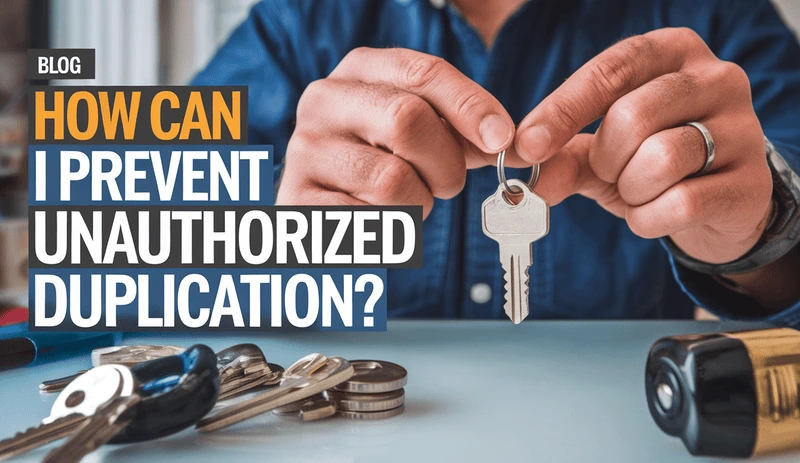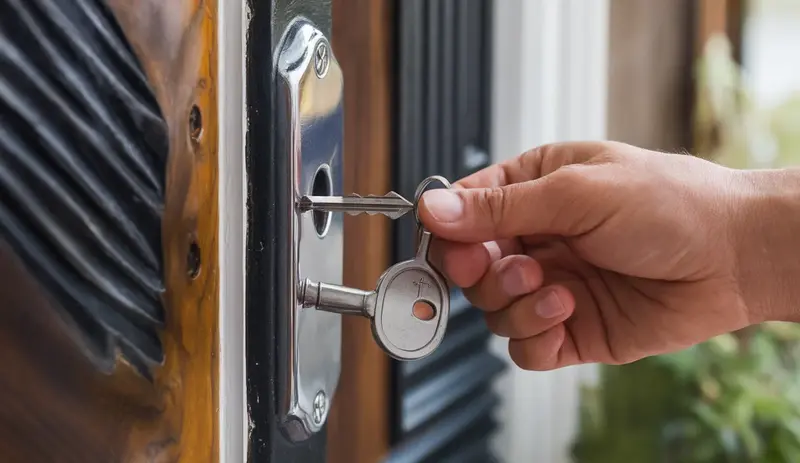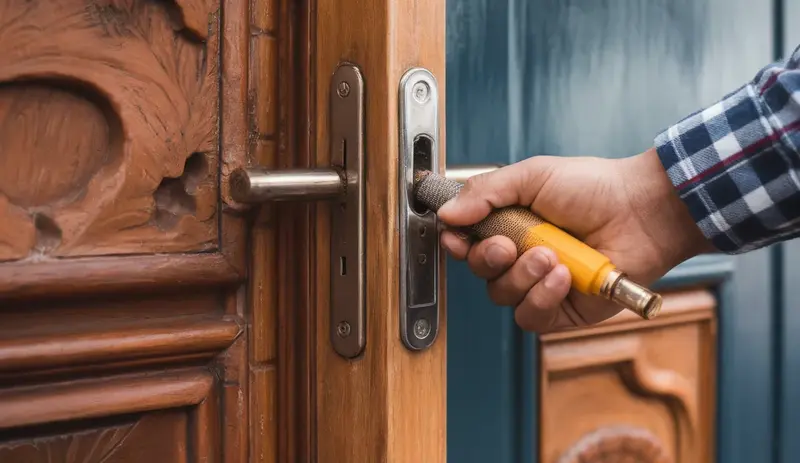
Ever had that weird, unsettling feeling that someone might have a copy of your key without your permission? Maybe you’ve given out spare keys to friends, contractors, or old roommates and now can’t quite remember who has access to your home.
Most people don’t realize how easy it is for someone to make a duplicate key without your knowledge. One quick trip to a hardware store or kiosk, and suddenly your “private” key isn’t so private anymore. But don’t worry – there are solid ways to protect yourself.
Why Key Copying is Easier Than You Think?
Let’s discuss a topic that flies under the radar for most people: in contemporary society, key duplication is a shockingly straightforward affair.
You’d be hard-pressed to find a hardware store, mall kiosk, or upscale supermarket that doesn’t offer some manner of key copying service, with which your average store associate can duplicate your key in an astoundingly short time. What was once the purview of specialized locksmiths has become the domain of minimum-wage retail workers.
The Verification Challenge
The frightening aspect? Numerous places don’t require much verification at all. Someone could stroll in with a non-original key and have a copy made with almost no questions asked in under five minutes. There are some big-box stores, though, that keep things a bit more secure. Home Depot and Lowe’s are two places where you can still get a key made, but if you plan on doing that, you’re much better off doing it during the day when there are more employees around.
Alarming Statistics
Alarming numbers indicate that around 30% of key reproductions occur without the knowledge or consent of the original key owner. So for every ten keys copied, three are likely to be in the hands of people who shouldn’t have access to them.
Types of Keys That Are Harder to Duplicate
Not all keys are equal. Here’s something that most people don’t realize: specific key designs are engineered to prevent easy duplication. Keys that belong to restricted key systems—often found in businesses and high-security facilities—have special legal protections that make it much more difficult for unauthorized persons to have their keys reproduced.
Key designs that are patented include singular elements like sidebar mechanisms, elaborate cuts, and registration marks that ensure standard key-cutting machines can’t reproduce them with precision. These unique keys can’t be cut without special equipment, and the original manufacturers of the patented key designs are usually involved in the cutting process.
These advanced key systems are used by professional locksmiths like those at Doctor Lock and top-notch security firms to offer an additional layer of protection. Although they’re pricier, they give much better security than the usual key-and-lock designs.
Legal Protection: What Can You Actually Do?
What are the implications of this for your private security? The rules regarding key control differ from state to state, but in almost all jurisdictions, there are some laws that protect against unauthorized key copying. If you have a key to a commercial or restricted space that is clearly marked “DO NOT DUPLICATE,” then you have a key that is provided some level of legal protection.
If a person copies your key without permission, you may have legal means to address the situation. Affected individuals might take one of two paths: they might go to the police and file a report, or they might pursue the matter in civil court. The first option gets you a little more directly to the “potential trespass” scenario that some courts and jurisdictions use to characterize unauthorized key duplication.
You May Like: Laser Key Cutting: Modern Key Making Explained 2025
Advanced Technology for Key Protection
How we consider physical keys is being altered by technology. The smart lock and digital entry system alternatives are becoming progressively more common, providing solutions that do away with the key-related risks of yore. And then there are biometric systems. Using fingerprints or facial recognition, these setups eschew the very concept of a key in favor of a more secure, more sensible means of entering one’s home.
If you still prefer to use physical keys, some new tracking technologies let you keep tabs on just where your keys are and how often they’re used. These tiny GPS-enabled devices can be attached to your key ring. With them, you get real-time information about the whereabouts of your keys.
When to Change Your Locks Completely
At times, the hazards of key duplication make total lock replacement necessary. Losing track of who might have the keys, entry attempts that seem too frequent to be normal, or major life changes-like moving or separating from a housemate-are all good reasons to consider a total lock replacement.
Changing locks is something that professional locksmiths at our Google Maps location suggest doing every 5-7 years or right after any event that might compromise your security. Although this can seem like a lot of money, it’s nothing compared to the risk you take when you allow someone unfriendly into your space.
Select a locksmith who is licensed, has good reviews, and offers transparent pricing. They’re out there, so take your time. A standard lock replacement will typically cost you between $75 and $250, contingent upon the complexity of the lock and how many locks you’re having replaced.
Final Words
Your home’s security starts with something as simple as a key. By being proactive and understanding your options, you can dramatically reduce the risk of unauthorized key duplication. Remember, it’s not about being paranoid – it’s about being smart and protecting what matters most.
Practical Next Steps:
- Review all current keys in circulation
- Consider a professional security audit
- Invest in high-security key systems
- Stay informed about new home security technologies


